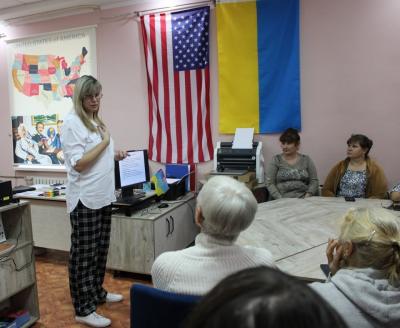Mary Eliza Mahoney
Mary Eliza Mahoney
First African-American Graduate Nurse
(1845-1926)
At the time Mary Mahoney was born, the abolition movement to end slavery was becoming a major political force in the United States. The year she turned twenty, the American Civil War ended and the Thirteenth Amendment to the United States Constitution was passed, abolishing slavery. The next great task for African Americans was the struggle for social and political equality. Mary Mahoney made major contributions to this effort. She became the first African American to graduate from a school of nursing, and she devoted the rest of her life to the nursing profession, and, in particular, to raising the status of black nurses.
Mary Eliza Mahoney, born on April 16, 1845, in Boston, Massachusetts, was the first of three children in the family of Charles and Mary Jane Mahoney. Historians have found few details about Mahoney's early life. Her parents made their way from North Carolina, a slave state, to Massachusetts, a free state. The family apparently did not have much money, because Mary had to work until she was thirty-three before she could enter nursing school.
When she was a teenager, she became interested in the brand-new profession of nursing. The first school of nursing had been established in London by the world-famous Florence Nightingale when Mary Mahoney was fifteen years old. Fortunately for Mahoney and for nurs¬ing, Boston was the home of the New England Hospital for Women and Children, where she went to work as a maid, cook, and washerwoman. The New England Hospital had been established by some of the first women doctors in the United States, and in the early 1870s became the first U.S. institution to offer nurses' training. In 1873 the first trained American nurse graduated. The pioneering medical women who found¬ed the hospital had suffered a great deal of discrimination in their strug¬gle to become doctors, so they were sympathetic to a young, bright, black woman wanting to become a nurse.
In 1878, Mahoney was one of about forty women to enter nurses' training at the New England Hospital. The academic standards there were very high. The courses were tough and the days were long — from 6:00 A.M. to 9:00 P.M. The student nurses spent twelve months gaining experience on the maternity, medical, and surgical wards and four months of private duty in patients' homes. They also attended lectures by the hospital's founder Dr. Marie Zakrzewska. Only four of the forty students in Mahoney's entering class made it through this course of study, and she was one of them. She was awarded her nursing diploma on August 1, 1879, becoming the first African-American graduate nurse.
Mahoney then registered with the Nurses Directory in Boston, indi¬cating she was available as a private-duty nurse. There were good oppor¬tunities for private nurses in those days. It took a long time to recover from an illness or operation in the late 1800s. The great advances of modern medicine, such as wonder drugs and heroic surgical operations, were still in the future. Therefore, many people were considered invalids and needed nurses in their homes. Mahoney gained a reputation as an efficient and trustworthy private nurse. She was called to work on cases as far away as North Carolina.
She was devoted to the principle that nursing is a profession, and objected to having household chores assigned to nurses. She was one of the first African-American members of the American Nurses Association, and she was an ardent supporter of the National Association of Colored Graduate Nurses (NACGN), formed by Martha Franklin in 1908. In 1909, at the age of sixty-four, Mahoney delivered the welcome address at that association's first annual convention in Boston.
Another great African-American nursing pioneer, Adah B. Thorns, was in the audience and heard Mahoney speak. In her book, Pathfinders: A History of the Progress of Colored Graduate Nurses, Thorns recorded her impression of Mahoney: "Miss Mahoney was small of stature, about five feet in height and weighed less than one hundred pounds.... She was most interesting and possessed an unusual personality and a great deal of charm.... She was an inspiration to the entire group of nurses pre¬sent".
In 1911, Mahoney was made a lifetime member of the NACGN and appointed chaplain. As chaplain, she oversaw opening prayers and the induction of new association officers. She reportedly never missed an annual meeting.
Mahoney was also an ardent supporter of woman suffrage. U.S. women were granted the right to vote in 1920. At the next election in Boston, held in 1921, Mahoney was one of the first women in line to cast her vote. By then she was seventy-six years old.
Two years later, she discovered that she had breast cancer. The can¬cer metastasized, and she died on January 4, 1926. Ten years later, the NACGN honored her by establishing the Mary Mahoney Medal to be awarded to African Americans for distinguished service to nursing. The award was continued even after the NACGN merged with the American Nurses Association in 1951.
More detailed information can be found in the "Extraordinary Women of Medicine" Darlene R.Stille, and issued by The Children's Press in the USA.
Information should be used just for educational purposes.











Comments